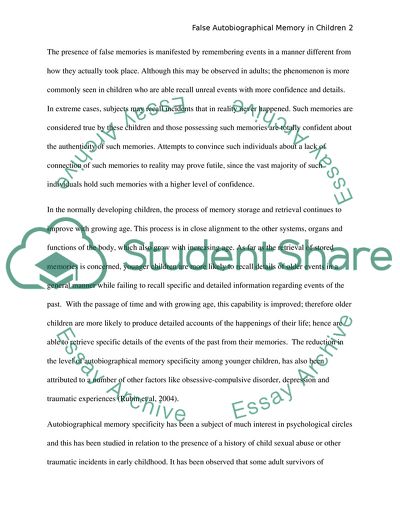Cite this document
(False Autobiographical Memory in Children Coursework Example | Topics and Well Written Essays - 2500 words, n.d.)
False Autobiographical Memory in Children Coursework Example | Topics and Well Written Essays - 2500 words. https://studentshare.org/psychology/1833823-false-autobiographical-memory-in-children
False Autobiographical Memory in Children Coursework Example | Topics and Well Written Essays - 2500 words. https://studentshare.org/psychology/1833823-false-autobiographical-memory-in-children
(False Autobiographical Memory in Children Coursework Example | Topics and Well Written Essays - 2500 Words)
False Autobiographical Memory in Children Coursework Example | Topics and Well Written Essays - 2500 Words. https://studentshare.org/psychology/1833823-false-autobiographical-memory-in-children.
False Autobiographical Memory in Children Coursework Example | Topics and Well Written Essays - 2500 Words. https://studentshare.org/psychology/1833823-false-autobiographical-memory-in-children.
“False Autobiographical Memory in Children Coursework Example | Topics and Well Written Essays - 2500 Words”. https://studentshare.org/psychology/1833823-false-autobiographical-memory-in-children.


